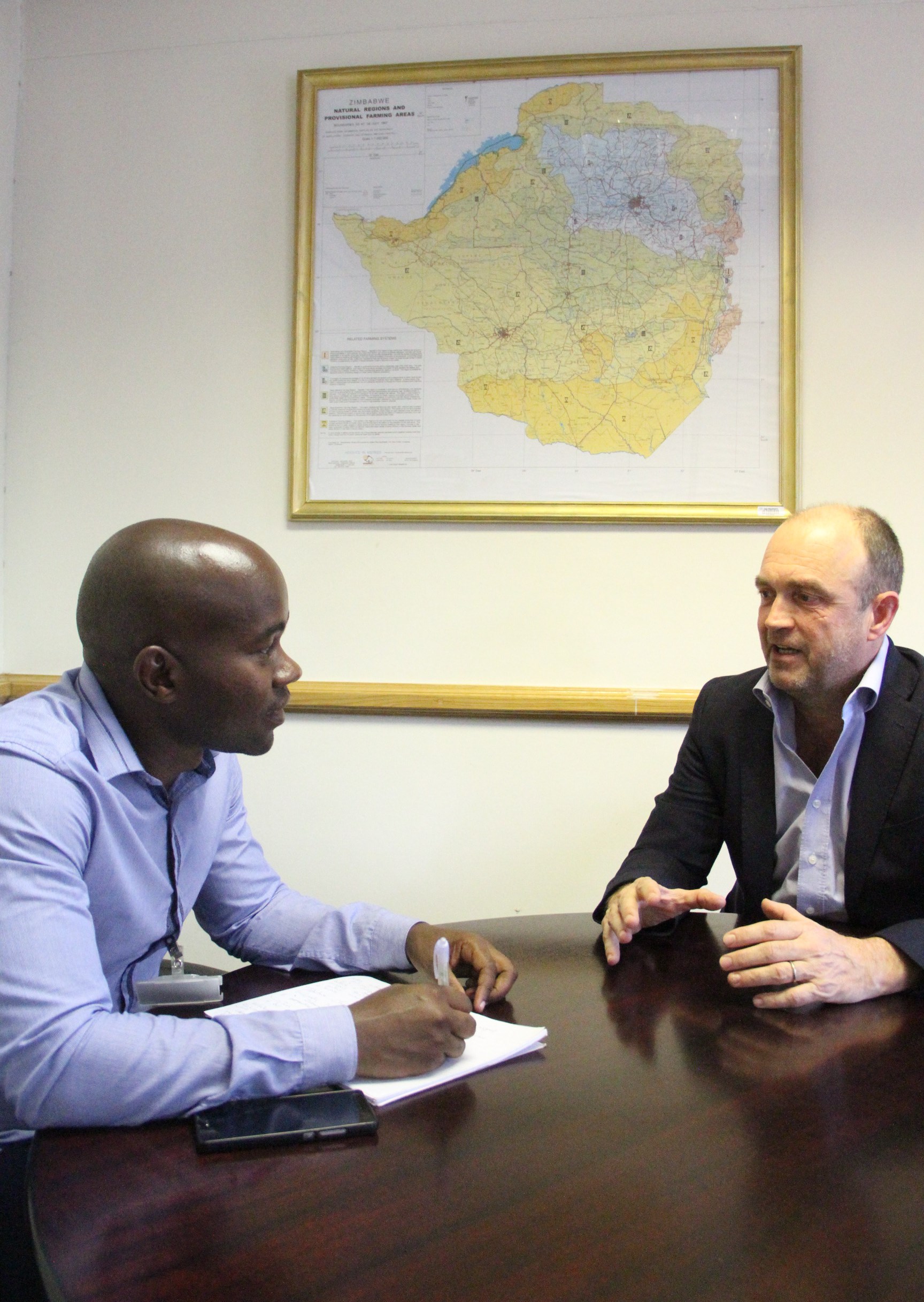Hubert Boulet is the Programme Coordinator of the Sustainable Wildlife Management (SWM) Programme at Food and Agricultural Organisation (FAO) HQ in Rome, which is working in 13 pilot countries, including Zimbabwe. The SWM Programme is a major seven-year African, Caribbean and Pacific Group of States (ACP) initiative, implemented by FAO, that seeks to reduce hunting of wildlife to sustainable levels whilst developing alternative sources of food and income for rural communities. It is being funded by the European Union through the 11th European Development Fund (EDF) and co-funded by the French Facility for Global Environment (FFEM).
Spiked Online Media (SOM): Zimbabwe is fully committed to the 2030 Agenda for Sustainable Development. This global agreement aims to rid the world of poverty and hunger during the next twelve years, as well as halt the loss of natural habitats and wildlife. How is your Programme contributing to these tough challenges?
Hubert Boulet (HB): These are exactly the types of challenges that the Sustainable Wildlife Management (SWM) Programme is addressing. In fact, our work is directly contributing to many of the Sustainable Development Goals (SDGs) in the 2030 Agenda.
Millions of people around the world currently depend on hunting and wildlife both for food and income. The populations of many wild animal species are in decline; as a consequence and if we don’t find solutions, then we will face the twin challenges of wildlife extinction and rural communities suffering from rising levels of food insecurity.
So what are we doing? In August 2018, we began implementing innovative projects to reduce the hunting of wildlife to sustainable levels and to protect endangered wildlife species in 13 countries, 11 of which are in Africa. We are working closely with rural communities to promote sustainable hunting practices and develop alternative sources of protein and income. We are also working simultaneously with national authorities to adapt and formulate better public policies, to monitor and conserve wildlife and achieve sustainable levels of hunting.
SOM: In which parts of Zimbabwe are you working?
HB: A wide range of potential intervention sites were considered. After an in-depth evaluation, it was decided to focus our efforts in the Kavango Zambezi Trans-Frontier Conservation Area (KAZA TFCA) and in particularly the Mucheni Community Conservancy in Binga district. Over the border in Zambia, we are also working hand in hand with the Simalaha Community Conservancy, in Mwandi district, Western Province. Whilst both sites have distinct cultures and traditional governance structures, the two Conservancies experience large-scale annual migrations of fauna and have similar histories of human-wildlife conflict, such as crop raiding by elephants and livestock lost to carnivores. They also have similar ecological challenges, including erratic rainfall and poor soils.
Our project aims to improve the management of natural resources, including wildlife, by the Community Conservancy. This includes reducing the pressure on wildlife by developing alternative sources of proteins, such as livestock husbandry and aquaculture, diversification of local sources of income and minimising human-wildlife conflict. The central idea is that consumption of wild meat can be sustainable if it is well managed. Hunting was halted for 5 years in the Mucheni Community Conservancy, to allow wildlife populations to recover, but since 2015 hunting has resumed again. However, the current general decline in wildlife populations is attributed primarily to poaching.
SOM: Who are you working with in Zimbabwe to implement these complex activities in the KAZA region?
HB: This African, Caribbean and Pacific Group of States (ACP) initiative has mobilised a powerful group of international partner organisations with experience and expertise in wildlife conservation, food security and policy development. The overall SWM Programme is being implemented by FAO, the French Agricultural Research Centre for International Development (CIRAD), the Centre for International Forestry Research (CIFOR), and the Wildlife Conservation Society (WCS). It is funded (€45 Million) by the European Union through the 11th European Development Fund.
The project activities in Zimbabwe and KAZA are coordinated by CIRAD, with support from the other partners. As in all the SWM pilot countries, we are working closely with national authorities, and in this specific case with various stakeholders involved in the Mucheni Community Conservancy.
SOM: Climate change is affecting us all and is creating many challenges for communities and wildlife in Zimbabwe. How is the SWM Programme addressing climate change?
HB: Yes, KAZA is facing climatic challenges such as floods, chronic droughts and erratic rainfall. This creates many risks for rural communities who rely on rain-fed crops and livestock production. One of our primary objectives is to improve the resilience of local communities to these climatic and socio-economic shocks.
For instance, in Mucheni communal lands, conflicts typically arise at watering points, which are shared by livestock and wild animals such as elephant, hippo, lion and hyena. The SWM Programme is promoting ways to improve the co-existence of human and wildlife by reducing the costs associated with protecting livestock and crops. This will have a positive impact on the entire ecosystem as well as local communities.
Our work in Mucheni Community Conservancy in Binga will not only address local needs, but will also be a source of valuable lessons and models that can be adapted and scaled up in other parts of Zimbabwe and other ACP countries. This work will therefore directly contribute to the goals of the Convention on Biological Diversity and the United Nations Climate Change (UNFCCC), and indeed the UNFCCC is meeting as we speak in Poland at the 24th Conference of the Parties to tackle many issues, including the sustainable use of biodiversity and climate change.






